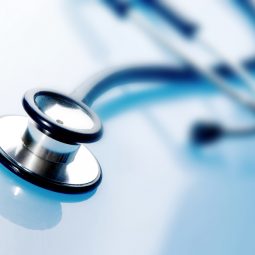By Kimia Newell, DMSc, PA-C, family medicine

Q: Why is it important to know your family medical history?
Besides making it easier to fill out medical forms, learning about your family’s health history can make a big difference in your own health. Many medical conditions have genetic components. With your family history in hand, your medical team can connect the dots between you and your genetics. If something appears to run in your family, we can tailor a prevention and treatment plan for you much sooner than if you’d waited for symptoms to show up.
On a more personal level, having conversations with your family members about their health can help deepen connections within your family. Similarly, talking with your care team about your family helps your providers get to know you as the whole person that you are.
Q: Who should you ask?
Start your information-gathering with your parents and siblings — their health histories are the most relevant to your own. Most likely, they’re also the people you’re most comfortable having these conversations with. Asking them about their health history may lead them to share stories about other relatives’ experiences, creating a ripple effect for future conversations further out on the family tree.
Q: What questions should you ask?
This depends on your personal style and your comfort level with the person you’re talking to. But in general, I recommend asking open-ended questions. You could simply say, “My doctor asked me what health conditions my family members have had. What kinds of things have you dealt with?” Other questions can follow naturally, such as, “How old were you when that started?” “Did you have symptoms?” “What treatments worked for you?” “What has it been like living with that condition?”
Questions like these can lead to meaningful conversations that help you support and bond with your family. They also can be revealing in ways that might be important to your own health. For example, if depression runs in the family, and a relative tells you about a medication that’s working well for him, it might work well for you, too, reducing trial and error and helping you get results faster. Or if you learn about symptoms that your mother experienced years before she was diagnosed with diabetes, that could alert you to red flags in yourself. It’s like turning on a light at 35 instead of 65, so you can make better decisions sooner.
Q: How should you document your history?
The U.S. Surgeon General provides a tool for documenting your “family health portrait.” But if that’s not your style, there’s no need to be that formal. Just ask, listen, write it down, and use it. Share it with your providers, share it with your family (while respecting requests for privacy), and keep the conversation going.
Q: How can you keep the conversation going?
There’s a reason why Thanksgiving is designated as National Family Health History Day — with family members already gathered together, it’s a perfect time to go beyond “How are you?” and sincerely ask folks how their health has been. (As a conversation starter, it definitely beats politics.) Let your family know: “Your health matters to me. Please keep me posted, and I’ll do the same.”
Q: What if you were adopted or conceived with a sperm/egg donor?
Most adoptions today are open, allowing family members access to information. But that wasn’t always the case, and it still isn’t in many situations. The American Heart Association offers advice to help fill in the blanks as much as possible.
Sperm and egg donation banks provide varying levels of health information on donors, from self-reported health histories to genetic testing results — the U.S. Donor Conceived Council is an advocacy group that provides more information.
In these and other situations, there may be limits to what you can discover about your own history. But one thing you can do is to start documenting what you do know to make this task easier for your own children. Learning all you can, and sharing it, will be helpful for you and your family for generations to come.


